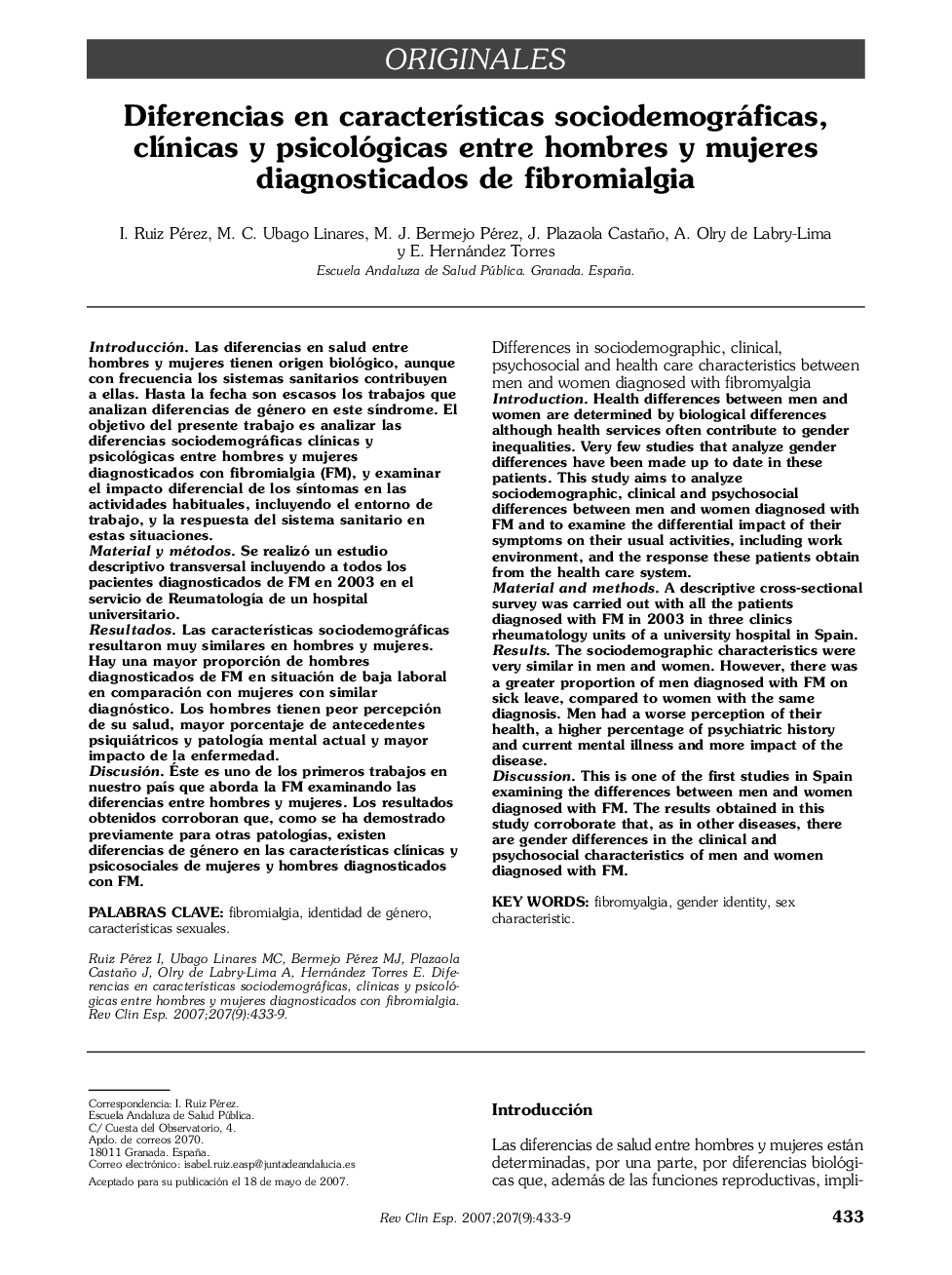| Article ID | Journal | Published Year | Pages | File Type |
|---|---|---|---|---|
| 3828376 | Revista Clínica Española | 2007 | 7 Pages |
IntroducciónLas diferencias en salud entre hombres y mujeres tienen origen biológico, aunque con frecuencia los sistemas sanitarios contribuyen a ellas. Hasta la fecha son escasos los trabajos que analizan diferencias de género en este sÃndrome. El objetivo del presente trabajo es analizar las diferencias sociodemográficas clÃnicas y psicológicas entre hombres y mujeres diagnosticados con fibromialgia (FM), y examinar el impacto diferencial de los sÃntomas en las actividades habituales, incluyendo el entorno de trabajo, y la respuesta del sistema sanitario en estas situaciones.Material y métodosSe realizó un estudio descriptivo transversal incluyendo a todos los pacientes diagnosticados de FM en 2003 en el servicio de ReumatologÃa de un hospital universitario.ResultadosLas caracterÃsticas sociodemográficas resultaron muy similares en hombres y mujeres. Hay una mayor proporción de hombres diagnosticados de FM en situación de baja laboral en comparación con mujeres con similar diagnóstico. Los hombres tienen peor percepción de su salud, mayor porcentaje de antecedentes psiquiátricos y patologÃa mental actual y mayor impacto de la enfermedad.DiscusiónÃste es uno de los primeros trabajos en nuestro paÃs que aborda la FM examinando las diferencias entre hombres y mujeres. Los resultados obtenidos corroboran que, como se ha demostrado previamente para otras patologÃas, existen diferencias de género en las caracterÃsticas clÃnicas y psicosociales de mujeres y hombres diagnosticados con FM.
IntroductionHealth differences between men and women are determined by biological differences although health services often contribute to gender inequalities. Very few studies that analyze gender differences have been made up to date in these patients. This study aims to analyze sociodemographic, clinical and psychosocial differences between men and women diagnosed with FM and to examine the differential impact of their symptoms on their usual activities, including work environment, and the response these patients obtain from the health care system.Material and methodsA descriptive cross-sectional survey was carried out with all the patients diagnosed with FM in 2003 in three clinics rheumatology units of a university hospital in Spain.ResultsThe sociodemographic characteristics were very similar in men and women. However, there was a greater proportion of men diagnosed with FM on sick leave, compared to women with the same diagnosis. Men had a worse perception of their health, a higher percentage of psychiatric history and current mental illness and more impact of the disease.DiscussionThis is one of the first studies in Spain examining the differences between men and women diagnosed with FM. The results obtained in this study corroborate that, as in other diseases, there are gender differences in the clinical and psychosocial characteristics of men and women diagnosed with FM.
